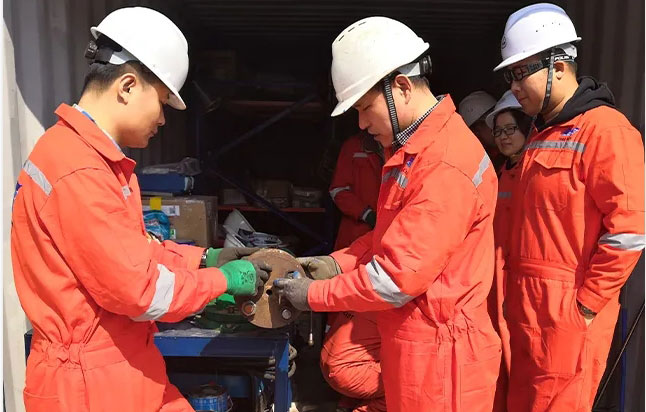Maintaining the integrity and efficiency of pipelines is of utmost importance in various industries such as oil and gas, chemical, and water management. Flange management, leak tests, and pipe cleaning are vital aspects of pipeline maintenance and play a crucial role in ensuring optimal performance, safety, and environmental protection. In this article, we will delve into the significance of flange management, leak tests, and pipe cleaning in enhancing pipeline performance.

Flange Management:
Flanges are essential components used to connect sections of pipes, valves, and other equipment in a pipeline system. Effective flange management involves regular inspection, maintenance, and tightening of flange connections. Proper flange management prevents leaks, ensures structural integrity, and minimizes the risk of accidents. Additionally, it helps maintain the efficient flow of fluids and gases within the pipeline, reducing energy losses and optimizing overall performance.
Leak Tests:
Leak tests are conducted to identify and rectify any leakage issues within the pipeline system. Even minor leaks can lead to significant losses, safety hazards, and environmental contamination. By performing regular leak tests, pipeline operators can detect leaks promptly and take corrective measures to prevent further damage. Leak tests also help comply with industry regulations and standards, ensuring the safety of personnel and surrounding communities.
Pipe Cleaning:
Over time, pipelines can accumulate debris, sediment, scale, or deposits, which can hinder the flow of fluids and reduce operational efficiency. Pipe cleaning is necessary to remove these contaminants and maintain optimal performance. Cleaning techniques such as mechanical pigging, chemical cleaning, or hydroblasting are employed to remove obstructions, restore flow capacity, and prevent corrosion or blockages. Clean pipelines minimize pressure drops, improve energy efficiency, and extend the lifespan of the pipeline infrastructure.
Benefits of Flange Management, Leak Tests, and Pipe Cleaning:
Proper maintenance practices, including flange management, leak tests, and pipe cleaning, yield several significant benefits for pipeline performance:
Enhanced Safety: Regular maintenance minimizes the risk of leaks, ruptures, or failures, promoting the safety of personnel, nearby communities, and the environment.
Improved Efficiency: Flange management, leak tests, and pipe cleaning ensure the smooth flow of fluids, reducing pressure drops, and optimizing the pipeline's energy efficiency and operational performance.
Regulatory Compliance: Adhering to regular maintenance practices helps meet industry standards and regulatory requirements, avoiding penalties and legal consequences.
Extended Lifespan: Timely maintenance extends the lifespan of the pipeline infrastructure, reducing the need for costly repairs or replacements.
Environmental Protection: By preventing leaks and keeping pipelines clean, the risk of environmental contamination is minimized, protecting ecosystems and natural resources.
Conclusion:
Flange management, leak tests, and pipe cleaning are critical aspects of maintaining pipeline performance, integrity, and safety. Regular inspection, maintenance, and cleaning activities help identify and address potential issues promptly, preventing accidents, reducing energy losses, and ensuring compliance with industry regulations. By prioritizing these maintenance practices, pipeline operators can enhance efficiency, prolong the lifespan of their infrastructure, and contribute to environmental sustainability in the long run.




Comments
Please Join Us to post.
0